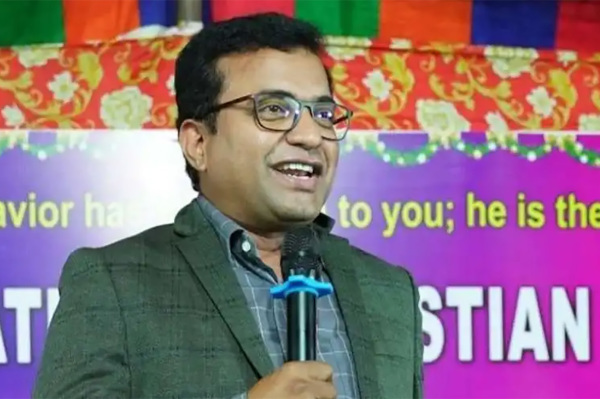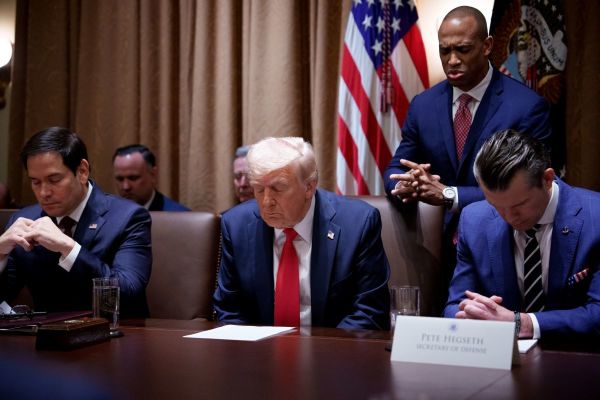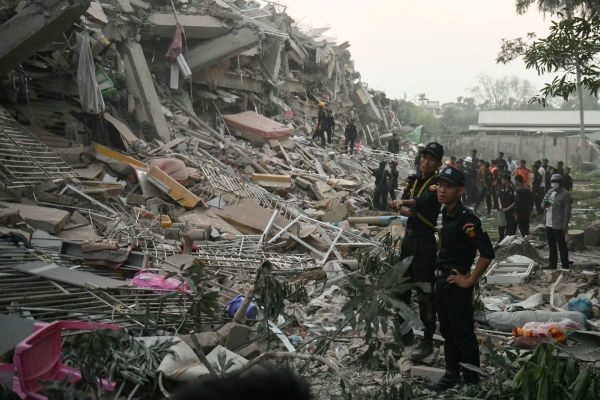Jim Newton, Pastor and Founder of Celebration Shop
Q: Were you raised in the United Methodist Church? What are some of your earliest memories of attending or participating in church?
A: Yes, I was. I was born in Marshall, Texas, and my family went to First United Methodist Church in Marshall. Then when I was about, I think, 2 or 2½, we moved to west Texas and lived in a bunch of little towns: Andrews, Midland, Brownfield. From the time I was in about the fourth grade until I graduated from high school we were in Brownfield at First United Methodist Church. I was just always a part of the church ever since I can remember.
Q: How has the church shaped your faith life?
A: Well, I?d say in addition to the content and the spiritual direction that I've gotten from sermons and things that I've heard, the most important thing has been the people that I've met who, through the church, have shaped my life. I was thinking about that over the last couple of days. Mrs. Carpenter was a Sunday school teacher in Brownfield at our First United Methodist Church there when I was in elementary school. And she just really made the Bible come alive. Even us guys that would try to cut up a little bit would be quiet when Mrs. Carpenter began to talk about the Bible. Then when I was in high school at that same church, coach Charlie Keith was (a) very powerful (influence). He was a big, massive man, and yet he was a very committed, faithful person. That was at a time in my life when I really respected sports-related people. He was a coach and had been a great football player in college. But he was a real man of faith, and he had a profound impact on me just because of the way he lived and by what he said and how he taught the Bible.
Q: You have a master's degree in theology. What led you in that direction?
A: Yes. I went to Perkins School of Theology at SMU (Southern Methodist University in Dallas, Texas). I think I just always wanted to make a difference. As a matter of fact I can remember my mother?s mother, my grandmother, telling me when I was a little bitty boy, "One day you?re going to do something that?s really going to make a difference in this world. And I?m really proud of you for doing that." I mean she basically scripted me to expect to make a difference in the world. And so I kind of was always looking for (a way to do that). And it came to me when I was in college that maybe the ministry would be something that I ought to look at. I transferred from the University of New Mexico where I was going at the time, to McMurray College, a Methodist-related institution in Abilene, Texas, and began to take pre-theological studies.
Q: Did you ever feel called to be a pastor?
A: Yes, I did. Matter of fact, I even did an internship at a United Methodist church in Wichita Falls, Texas, when I was going to Perkins, and up until that time I was thinking about being a pastor. I also really enjoyed pastoral counseling. And so I took all of my elective courses in pastoral counseling. I thought I would be a counselor. But I've always had this desire and an aptitude for music and for singing. And that?s really what I couldn't quit doing. I couldn't quit making music. And so I decided I just had to find a way to be in ministry through music.
Q: When did you start combining music with your ministry?
A: There was a bit of delay using the music. I guess I just hadn't put it together, even though music had been something that had been so powerful for me. It actually helped me lift depression that I had when I was in college at a young age. It was only later, when I was invited to go into a children?s hospital in Columbus, back in about 1983, that I really discovered music can be as powerful for other people in lifting their feelings as it has been for me. And I began to use the guitar then to sing with kids in hospitals and their families.
Q: Was there a turning point in your life that led to you singing for children?
A: I had been on a 14-day tour of churches and college campus ministry groups up in the Ohio area. One of the people who had sponsored me was a dentist. He and his wife had lost a child to cancer a few years before at Columbus Children?s Hospital. And he said, "You?re off tomorrow afternoon. Would you go and sing for the kids at Columbus Children?s Hospital?" He had helped pay my way to come from Texas, and I couldn't tell him no. I thought to myself I really wanted an afternoon off and deserved an afternoon off. And I don't even have children?s material. I had been doing mainly youth and young adult material. But I couldn't say no, and I went, and it turned out to be a life-changing experience.
You know how sometimes you go through a door that God opens and it changes everything in your life? That?s what happened that afternoon. I had an experience with one little boy and his mom in his room. He was dying of cancer. He responded to my songs, as feeble an attempt as they were and as poor an attitude as I had. He began to clap his hands and smile, and his mom started crying. That got me, and I started crying. It?s like this light bulb went off over my head, and I thought, "Gosh, if I can come in here with a bad attitude and poor material for kids, and the need is so great that this little boy responds and his mother responds anyway and they were so appreciative of what I did, maybe this is where I belong." So I started to volunteer to go into hospitals, and then over the years, since 1983, it?s become my full time work. That?s what I do for my livelihood now ? I sing for kids in hospitals.
Q: Tell me about Celebration Shop. How did it come into existence?
A: It actually started as a nonprofit organization back in 1981 to help support youth rallies and college campus ministry concerts and that sort of thing. And then when I discovered this need in the hospital and how good it felt to try to help kids with music and families in the hospital setting, I came back and told my board maybe this is direction we ought to go. They all liked it, and so I thought, "We?ll just go in that direction for a while and see what happens." And just door after door after door opened up, and we kept on going. We produced three different CDs, tapes, series and what we call our Hugworks series for kids. We not only do the direct-service sing-along programs, but we also provide these CDs and tapes that we give to as many kids and families as possible, so that there?s some music to support them when we leave.
Q: Do you also do summer camps?
A: I do camps in the summertime, especially camps for children with cancer and for their siblings. Those camps are just a powerful, magical time. I mean, kids will make a decision, as they do in church camps or any kind of camp, in a week that they wouldn't make in a year otherwise. Reality gets suspended, and you?re with people who really understand you and who love you, and there?s an unconditional sense of affirmation there that helps people become whoever they are really called to be.
Q: How did you meet and start working with Noel Paul Stookey of Peter, Paul, and Mary fame?
A: Back when we first started working with kids in hospitals, we wanted to do an initial recording project. I had recorded four albums up to that point, but I wasn't really satisfied with the quality level of the production that we were doing. I didn't feel that our compositions, especially for children, were of the quality level that I thought they needed to be. I was looking for a producer-composer-collaborator in addition to my friend, Paul Hill, who works with me all the time and was working with me at that time. He (Stookey) was No. 1 on my list because of things I had heard about him as a person and as a musician. And, of course, Peter, Paul and Mary were always folk icons. I just respected their music and their commitment to caring and making a difference in the world so much. It just came to be that another door opened quite unexpectedly. I got an opportunity to play at a reception after a concert that he did with his BodyWorks contemporary Christian band over in east Texas. This was about, I guess, in 1985 or ?86. Whenever he came over to me at the end of this reception ? all this little spiel that I had memorized rolled out. He ended up giving me another meeting in about three or four months after that. And he became just as fascinated by it and as caught up in doing something for children in hospitals as I have been. And he?s been a mainstay on our team ever since. He is a tremendous adviser and a great composer and a tremendous producer in the studio. So he?s helped our quality level. He?s been a great mentor.
Q: Describe what happens when you perform for children in a hospital.
A: Well, first of all, it?s a very humbling and inspiring situation. I have friends who say, "Gosh, how can you do it? I mean, how can you look at a child who?s near death or a child who?s dealing with cancer?" But it?s so much, you know, just seeing a child who?s willing to continue to have a great attitude and give back to life, even though they?re getting the pretty short end of the stick at the time. It is just inspiring to me and those of us who get to go and sing at hospitals. It?s kind of party time when we get there. The kids really respond to the music because music is just something that opens those emotional and spiritual doors. When you sing a song like "I?m a Little Frog" you give them a chance to fill in their feeling. The music kind of gently invites them out. And before you know it, they?re shaking a shaker and perhaps singing along or dancing a little bit if they feel good enough to do that. And it?s just amazing to watch it happen. It?s a miracle.
Q: Describe some of your songs.
A: Well, one of the chief ones that we do that we wrote in the very beginning is called, "I Can Be the Best I Can Be." The bridge of it says, "If there are things I can't do, if there are things I can't be, I?m still the very best at being me." I think that?s a message that I learned in the church via the unconditional love that I was shown by people and the scriptures. I just think that?s a message that we all need. That?s a very central song for us. We have one called "The Hospital Rap" that we wrote with teens who wanted to do a rap-type song. For old fogies like me, that was a real stretch. It says, "Doctor, doctor, I know you want to help, but sometimes it hurts." We wanted the kids to have permission to say how they feel, even at the same time that they affirm the medical establishment for trying to do what they can. What they have to go through hurts, and they need a place to express that and permission to say how they really feel.
Q: Do you get a lot of feedback from the children, their parents?
A: Yeah, we really do. We get a lot of e-mails from moms and dads and grandparents and friends. And there?s just a lot of affirmation when we?re there because if a child is very severely ill, as many of the kids are that we see, the parents are very stressed and very worn out. You can watch the children actually watch their parents or grandparents or older family members, and the kids begin to loosen up as those adults begin to loosen up. It?s just good for everyone. The staff really appreciates it too because they?re very stressed. They?re having to put kids and family members through things they would rather not have to do. But they have to help the kids get physically well. And, you know, the songs give them a chance to let their feelings go a little bit and just be a little silly or cry a tear when they need to.
Q: What have been the highlights and low points in your career?
A: It?s so ironic that you asked that because probably I would say that a number of experiences that I've had with children, at their death or near their death, are both the high points and the low points. Because you?re certainly sad when a child dies, and yet the children show such fantastic faith and a tendency to continue to give back to life in spite of the hand they've been dealt. I had an 11-year-old boy tell me one time at camp: "You know I?m going to die, don't you?" And I said, "Are you?" And he said, "Yeah." And he said, "But it?s OK. I?m pretty much settled with it. But don't talk to my mom and dad. They can't handle it." And we had a long conversation about the fact that he was ready to die and that he knew he was going to be with God, and I mean, it was incredible. He was like a man of 80 or 90 or 100 years old in terms of wisdom of a lifetime, but he was 11. Just to have the privilege of being there with those kids and sharing a song and hearing what they have to say and listening to the unique way that they respond to the music and the singing and just the spirit of music. It?s incredible. It?s an incredible gift. It?s low, but it?s high. I have lots of good friends, you know, who are kids. And I've got lots of fond memories of good friends who are children who have died. I?ll never forget them.
Q: In difficult times, who or what do you turn to for support?
A: Just the Spirit of God that I call upon in quiet sometimes, just silent moments or in prayer. I've found a real key for me is to remember the serenity prayer because there are so many situations that I encounter that I can't control at all. And all you can do is come and maybe lay out a little healing balm of music and hope that it makes a difference. You?d like to do something that would make a difference, but you just have to say, "Grant me the serenity to accept the things I can't change, the courage to change what I can, and the wisdom to know the difference." I find myself praying that all throughout the day because I think it really connects me to that higher power that God is and that the Spirit of Christ is, that we need to tap into and can if we?ll just stop long enough and either be quiet or ask for help.
Q: Is there anything else you want to add?
A: If people would like to know more about what we do and about what various folks do in music and in situations with children who are severely, chronically or terminally ill, they can check out our Web site, www.celebrationshop.org.
I hope that people will support music therapists in their area and artistic programs, whether it be music or art therapy or whatever kinds of artistic ways that folks are doing things with kids with special emotional and medical needs in their area. Those sorts of things really make a difference. Sometimes kids can be well physically, and the trauma that they've dealt with during the time that they've been trying to get well has left them bitter and sad and lonely and depressed. What we try to do through some of these artistic means is help kids stay connected to their soul and to come out the other side of a medical situation, and have retained the connection with who they really are and the gift that God has given to them. Or, if necessary, have what I think (John) Wesley would have called "a triumphant death" and a peaceful death. I get to get up every day and do what I love to do, and I actually get paid
By Kathy L. Gilbert






















